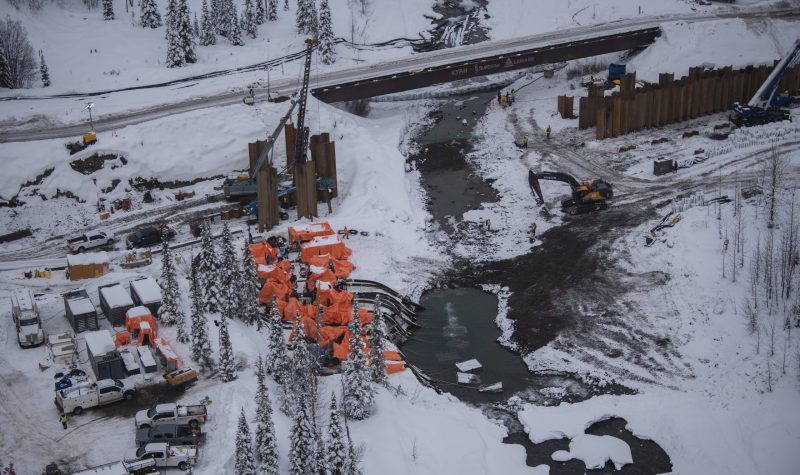Leaders from the Wet’suwet’en Nation have called on Coastal GasLink to stop work along the Clore River, following dozens of previous environmental violations and a ongoing BC Oil and Gas Commission investigation in the work activities.
In early January pipeline workers dug up a large section of the Clore River, a salmon and steelhead bearing tributary of the Skeena, to divert water as they prepare to dig a trench through the river on Likhts’amisyu (Fireweed) Clan territory.
“For months, Coastal GasLink has stopped us from accessing our own land to monitor pipeline work. Now we know what they were hiding. This reckless conduct violates both Wet’suwet’en and Canadian laws. Work on river crossings needs to stop immediately while investigators assess the damage,” said Tsebesa (Lillian Wilson), a Likhts’amisyu clan chief.
Taebesa and Wet’suwet’en Ranger, Gary Mitchell flew into Lho Kwa (Clore River) by helicopter on January 10th to examine the work site and monitor the situation. Although they were both saddened and upset by what they saw, they were not surprised.
“This project has dozens of infractions this is just another one, it’s angering but not surprising,” said Tsebesa.
According to the David Suzuki Foundation (DSF), which released photos of the Clore River worksite and damage to the river, “B.C.’s Environmental Assessment Office (EAO) has issued more than 50 warnings, 16 orders and two fines against Coastal GasLink and its contractors for what the Ministry of Environment and Climate Change Strategy describes as “repeated” problems with erosion and sediment control on its construction project,” DSF wrote in a press release. “In October, the EAO again noted that Coastal GasLink was failing to comply with orders intended to protect fish habitat.”
“We know what the damages are, we will never agree to have this project on our territory,” said Chief Na’Moks of the Wet’suwet’en. “People need to know what the damage and impacts are to salmon rivers and water that communities relay on for food and water.”


